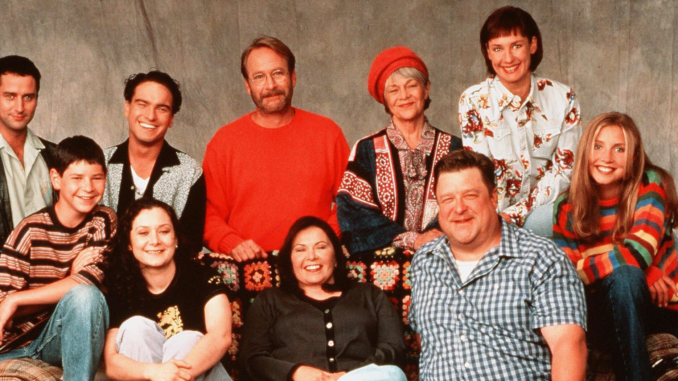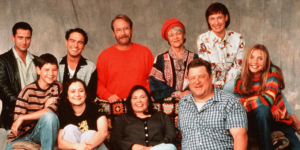
When Roseanne debuted in 1988, it changed everything. But did the world really understand the revolutionary impact it would have on television? Spoiler: It’s bigger than you think.
At a time when family sitcoms were dominated by idealized, picture-perfect portrayals of suburban life, Roseanne shattered the mold. The Conners weren’t rich, they weren’t flawless, and they didn’t fit into the usual cookie-cutter TV family. But this wasn’t just about “being different”—it was a radical change in how American families were portrayed.
1. The First Family to Talk About Money Woes: Why Roseanne Was a Radical TV Game-Changer
- In a world where TV families didn’t worry about bills, Roseanne boldly introduced a family struggling to make ends meet. Financial instability became the show’s driving force, making it relatable to millions of viewers in a way no show had before.
2. Body Shaming, Gender Roles, and Politics: How Roseanne Dealt With What No One Else Would
- Roseanne wasn’t afraid to tackle topics that made other shows uncomfortable. Body image? Check. Gender expectations? Check. Family trauma? Double check. The show used humor as a weapon to address the serious issues that the world was too scared to confront.

3. Breaking the Fourth Wall: Why Roseanne Was the Original Meta TV Show
- Long before shows like The Office or Arrested Development made breaking the fourth wall a trend, Roseanne was playing with self-awareness. The show frequently referenced its own ridiculousness, blurring the lines between fiction and reality in ways that were ahead of its time.
Conclusion: Roseanne wasn’t just a sitcom—it was a revolution. It changed how we looked at television and paved the way for shows that followed. The world didn’t see it coming, but now it’s impossible to ignore.
